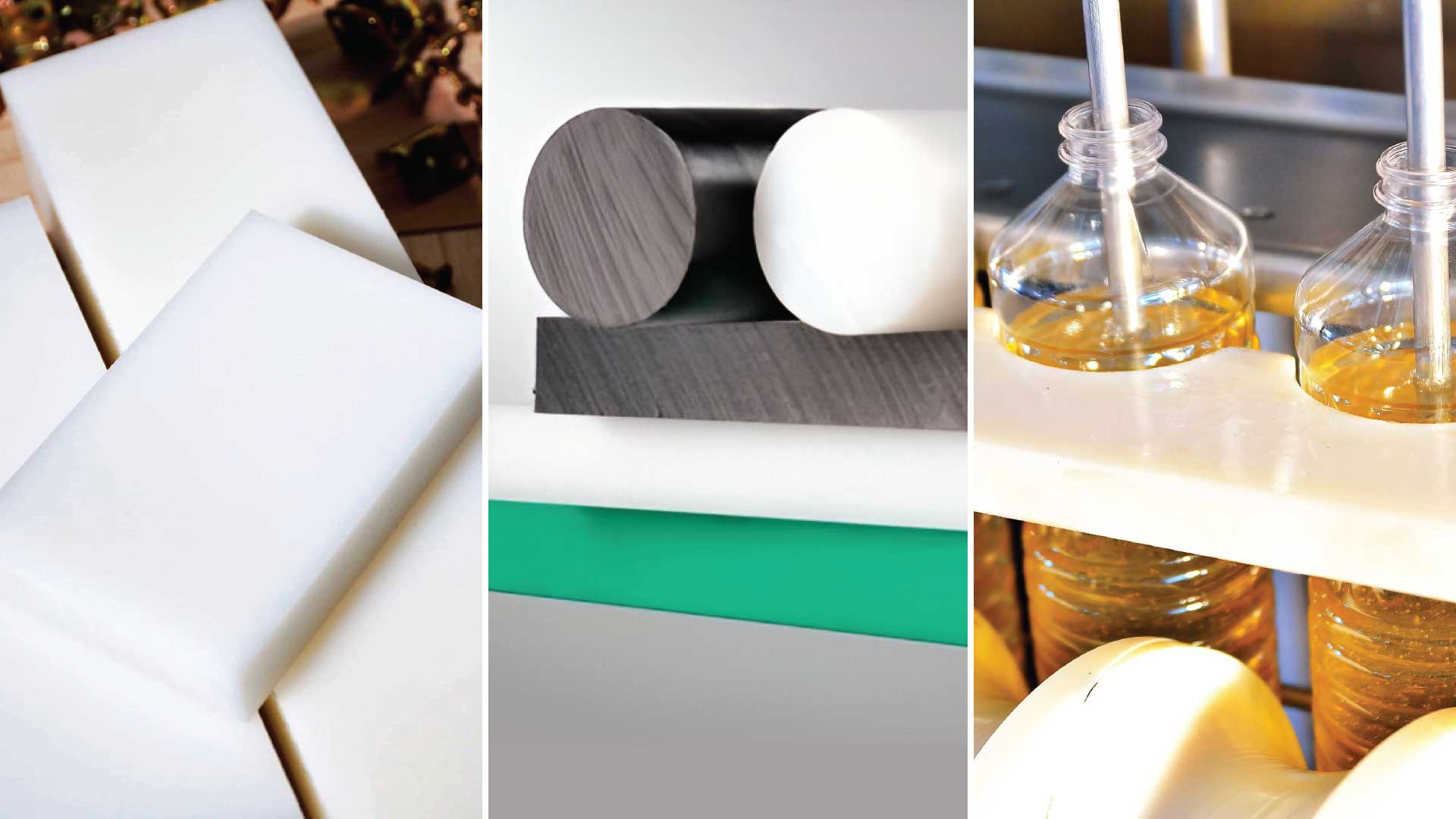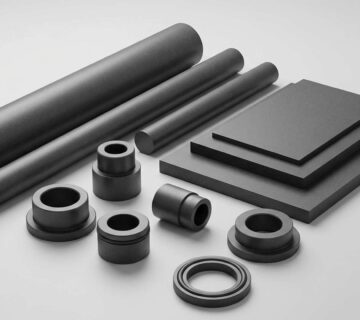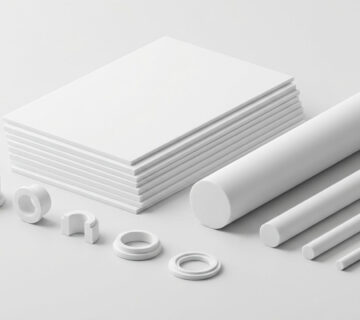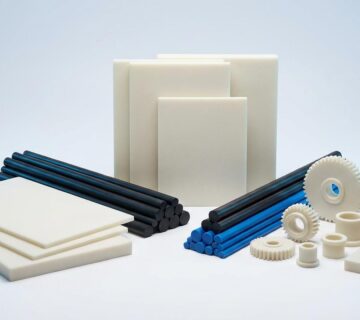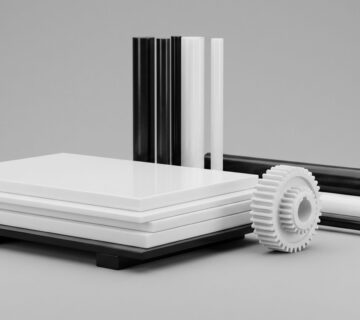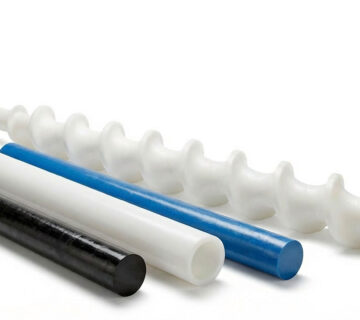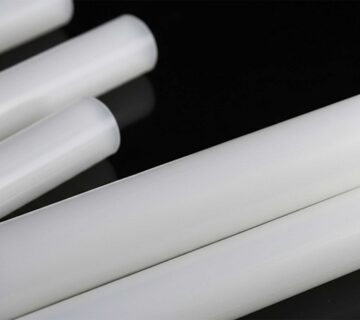Polypropylene (PP) is one of the most widely used types of thermoplastic materials in the world, thanks to its unique properties and countless applications across various industries. In this article, we take you on a comprehensive tour of the features and uses of this leading material and explore how it compares to other types of plastics
Tabel of content:
- A Comprehensive Definition of Polypropylene
- How Is Polypropylene Produced?
- Polypropylene vs. Polyethylene: Which Is Better?
- Where to Find High-Quality Polypropylene in Egypt?
What is Polypropylene and Why Is It an Ideal Material for Industry?
Polypropylene (PP) is a type of thermoplastic belonging to the polymer family. It is known for being lightweight, durable, and highly resistant to chemicals and heat. It is widely used across various industries around the world and is considered one of the best choices due to its unique balance between performance and cost-effectiveness. What makes polypropylene exceptional is that it is non-toxic and completely safe for use in food and medical products, and it is also recyclable—making it an environmentally friendly material.
Key Features of Polypropylene:
- Excellent heat resistance up to 130°C:
Polypropylene shows a high ability to withstand elevated temperatures without melting or deforming. This makes it ideal for applications that require steam sterilization or high heat operation, such as microwave-safe food containers and industrial piping. - Outstanding electrical insulation:
PP has high electrical resistance, making it ideal for manufacturing electrical insulators, cables, and control panels. It does not conduct electricity and is non-reactive to static charges, making it widely used in electronics and home appliances for safety and insulation. - Corrosion, moisture, and chemical resistance:
Polypropylene resists acids, alkalis, and organic solvents, making it suitable for chemical storage tanks, industrial pipes, and laboratory equipment. It also resists moisture and environmental conditions, allowing it to perform well in harsh environments without rusting or degrading. - Flexibility in molding and ease of manufacturing:
One of PP’s greatest advantages is its ease of thermoforming through processes like injection molding, blow molding, and extrusion. This allows for versatile production of various shapes and sizes, including sheets, fibers, pipes, packaging, or complex components used in high-tech industries. - Lightweight yet high mechanical strength:
Despite its light weight, PP boasts remarkable toughness and impact resistance. This makes it ideal for applications requiring materials that are both lightweight and strong, such as automotive parts, transport crates, and heavy-duty packaging. - Longer lifespan compared to other plastics:
PP is highly resistant to weathering, UV rays, and chemical degradation, enabling it to last for long periods without damage or color fading. It is therefore commonly used in outdoor applications like flooring, industrial panels, and irrigation systems.
For these reasons, polypropylene has become a preferred plastic material across various industrial applications—ranging from automotive and packaging to piping, synthetic fibers, and medical equipment.
How Is Polypropylene Produced? A Look at the Industrial Process
Polypropylene is produced through a polymerization process that transforms propylene gas (C₃H₆)—a petroleum derivative—into a solid material with unique characteristics. This process is carried out under precisely controlled conditions using specialized catalysts. Below is a detailed look at the main steps:
- Propylene Gas Preparation
Propylene gas is first separated from crude oil refining or natural gas. It serves as the primary raw material for producing polypropylene. - Polymerization Process
The propylene gas is pumped into a reactor under suitable pressure and temperature, and a Ziegler–Natta or metallocene catalyst is added. This catalyst is essential in accelerating the chemical reaction and determining the type of polymer produced (homopolymer or copolymer). - Cooling and Stabilization
Once polymerization is complete, the product is cooled and separated from any remaining solvents and catalysts. It is then treated with thermal stabilizers and UV protectants to enhance its resistance to environmental factors. - Pelletizing
The resulting polypropylene is extruded through precision molds and cut into small pellets, which are then dried to be ready for further manufacturing. - Packaging and Distribution
The pellets are packaged in specialized bags and delivered to manufacturing companies that use them to produce a wide variety of products such as fibers, pipes, sheets, packaging materials, and polypropylene fibers.
This industrial process ensures the production of high-quality polypropylene whose physical and chemical properties can be adjusted according to the required application, making it one of the most versatile polymers in today’s market.
The Difference Between Polypropylene and Polyethylene: Which Is Better?
Polypropylene (PP) and polyethylene (PE) are two of the most widely used thermoplastics in various industries, yet each has distinct properties that determine its suitability depending on the application.
Polypropylene stands out with its high heat resistance—up to 130°C—allowing it to maintain its physical and chemical properties in high-temperature environments. This makes it ideal for manufacturing heat-exposed products like reusable containers and automotive parts. It also boasts superior rigidity and mechanical strength, giving it high resistance to breakage and deformation. Additionally, it offers better resistance to UV rays and moisture compared to polyethylene.
On the other hand, polyethylene is more flexible and lighter than polypropylene, making it popular in the production of plastic bags, agricultural films, and pipes that don’t require high heat resistance. It also provides good chemical resistance, but its performance begins to decline around 80°C, which limits its use in high-temperature applications.
In conclusion, choosing the better material depends mainly on the final product and usage conditions. Each material meets different needs effectively, making both valuable in their own right.
Also Read:
- Best Transparent Plastic as a Glass Alternative
- Get High-Quality Transparent Acrylic Sheets
Where to Get High-Quality Polypropylene in Egypt?
If you’re looking for a trusted source to buy top-grade polypropylene at competitive prices, El Sharq Company is your first choice. The company offers a wide range of polypropylene products including polypropylene granules, polypropylene fibers, and polypropylene plastic sheets, all manufactured to high standards and suitable for a variety of industries.
Why Choose El Sharq Company?
- Certified Quality: Manufactured using the latest technologies for optimal performance and durability.
- Product Variety: A wide selection of polypropylene types ideal for packaging, construction, heavy industry, and more.
- Competitive Prices: Among the best polypropylene prices in Egypt without compromising quality.
- Specialized Customer Support: Our expert team is ready to assist you with all inquiries.
- Ongoing Technical Support & Training: We provide technical consultations to help you get the most out of polypropylene materials.
- Reliable & Fast Delivery: Serving clients all over Egypt with efficient logistics.
Don’t hesitate to browse our Engineering Plastics category to explore the latest offers, or contact us now a01030656516 for a free consultation and to find the ideal polypropylene product for your business.
Also Read:
- Types of Polycarbonate Sheets
- High-Density Polyethylene (HDPE)
Conclusion
In conclusion, polypropylene (PP) stands out as one of the most versatile thermoplastics, combining light weight with durability, making it the ideal choice for a wide range of industrial and commercial applications. Thanks to its unique properties—such as high heat resistance up to 130°C, excellent electrical insulation, and resistance to moisture and corrosion—polypropylene has become indispensable across sectors like packaging, construction, heavy industry, and even medical applications.
Its ease of manufacturing and shaping adds to its adaptability, making it both cost-effective and environmentally friendly, especially due to its recyclability.
When comparing polypropylene vs. polyethylene, it becomes clear that the right choice depends on the specific application. Polypropylene offers superior thermal and mechanical performance, while polyethylene is lighter and more flexible.
Lastly, if you’re looking for high-quality polypropylene at the best prices in Egypt, El Sharq Company is a leading supplier offering a wide variety of products, excellent customer service, ongoing technical support, and fast delivery. Investing in polypropylene from El Sharq means guaranteed quality and enhanced performance for your industrial and commercial projects.
Frequently Asked Questions
What are the uses of polypropylene?
Polypropylene is widely used across industries thanks to its outstanding durability, lightweight nature, and high resistance to heat and chemicals. At El Sharq Company, we provide high-quality PP used in the production of packaging containers, industrial pipes, fibers, and plastic sheets suitable for construction and heavy industry.
It’s also used in automotive parts, medical equipment, and electrical devices due to its excellent insulation properties.
With a wide range of polypropylene types available, clients in various sectors can find the perfect solution for their specific needs. Contact us now at 01030656516 for premium quality polypropylene products!
Is polypropylene hazardous?
Polypropylene is considered one of the safest and most environmentally friendly plastics, commonly used in food-grade and medical applications without any health risks. At El Sharq Company, we offer high-purity, raw polypropylene that complies with the highest safety and quality standards.
Our polypropylene is non-toxic, recyclable, and can withstand high temperatures without degrading or releasing harmful substances.
Don’t hesitate to order the best polypropylene(pp) granules and fibers from El Sharq for safe and reliable results in every application!
What is the difference between plastic and polypropylene?
“Plastic” is a general term used to describe a wide range of synthetic materials made from polymers. These include types such as polyethylene (PE), polyvinyl chloride (PVC), polycarbonate, and many more. Each plastic type has unique physical and chemical properties like flexibility, thermal resistance, and transparency, which determine its use in packaging, automotive, construction, medical devices, and more.
Polypropylene (PP), on the other hand, is a specific type of plastic known for its light weight, high thermal and chemical resistance, and toughness. It’s widely used in applications that require a strong and safe material, such as food containers, medical tools, and construction components.
Looking for a trusted supplier of high-quality polypropylene? Contact us today at 01030656516 for competitive prices and reliable supply
Is polypropylene breakable?
Polypropylene is highly resistant to breakage, thanks to its unique combination of strength and flexibility. It can withstand impacts and pressure without cracking or damage, making it ideal for industrial applications such as transport crates, water pipes, and engineering components. If you’re seeking exceptionally durable polypropylene that resists cracking or deformation, El Sharq Company is your go-to source. We offer premium-grade PP granules, fibers, and sheets, manufactured using cutting-edge technology to ensure top performance.
Order the best polypropylene in Egypt today – Call us at 01030656516!

